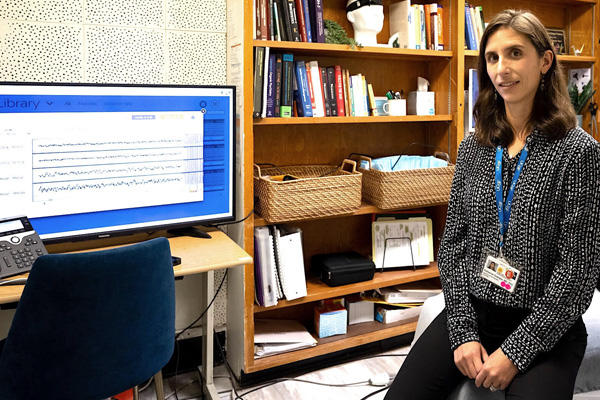IT’S ALL IN YOUR HEAD –
Oct. 4, 2021 – Researchers at the University of California, San Francisco surgically implanted a battery-operated, matchbook-sized device in Sarah’s brain — a “pacemaker for the brain” some call it — calibrated to detect the neural activity pattern that occurs when she is becoming depressed. It then delivers pulses of electrical stimulation to stave off depression.
Twelve days after Sarah’s device was fully operational in August 2020, her score on a standard depression scale dropped to 14 from 33, and several months later, it fell below 10, essentially signaling remission, the researchers reported.
“The device has kept my depression at bay, allowing me to return to my best self and rebuild a life worth living,” Sarah said. Sarah’s is the first documented case of personalizing a technique called deep brain stimulation to successfully treat depression. Much more research is needed before it’s clear how effective the approach could be and for how many patients. But several teams of scientists are now working on ways to essentially match the electrical stimulation to what happens in an individual patient’s brain.
Deep brain stimulation is used to treat Parkinson’s disease and several other disorders, but isn’t approved by federal regulators for depression because results have been inconsistent. While some previous studies suggested benefits, two trials sponsored by U.S. device companies were stopped in the last decade because stimulation seemed no better than the placebo effect of a “sham” implant that provided no stimulation.
But those studies didn’t target individualized locations or patterns of electrical activity in people’s brains. It was “one size fits all,” said Dr. Darin Dougherty, director of neurotherapeutics at Massachusetts General Hospital, who worked on one of the halted trials. He called the personalized approach with Sarah, which he wasn’t involved in, “very exciting.”



